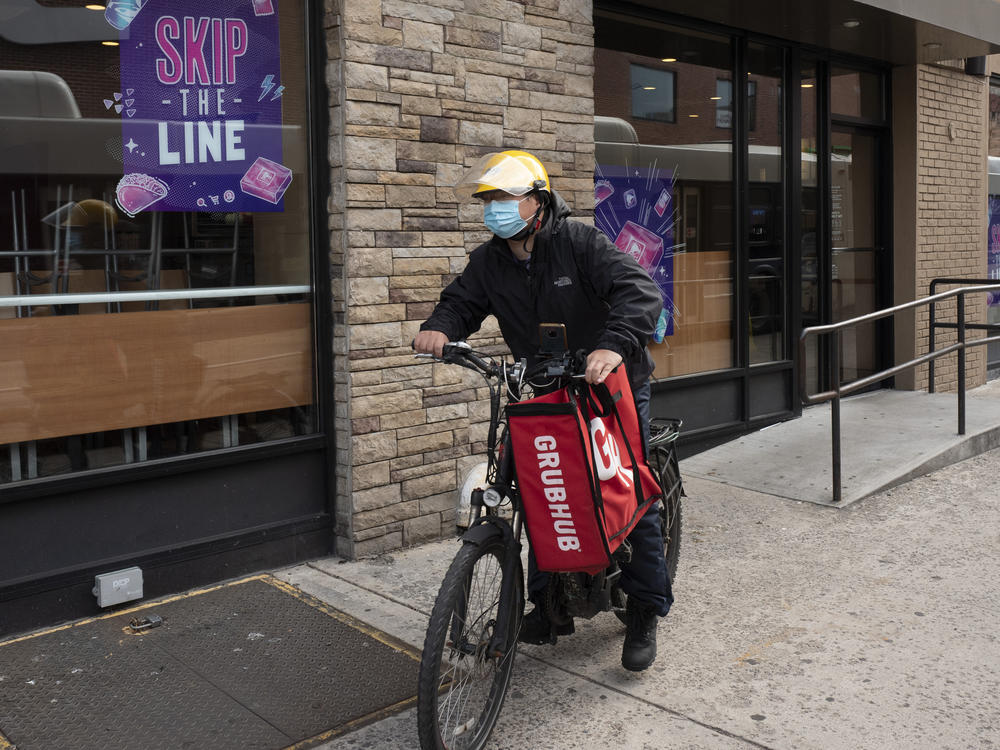Section Branding
Header Content
D.C. sues Grubhub for allegedly using deceptive trade practices
Primary Content
The District of Columbia is suing food delivery company Grubhub in a lawsuit filed Monday, in which it accuses the business of "deceptive trade practices," such as excessive fees, out-of-date restaurant prices and false advertising.
D.C.'s Attorney General Karl Racine said in the complaint that Grubhub often misrepresents what's offered on the app and website.
For starters, he said, Grubhub lists more than 1,000 "partner restaurants" available for delivery in D.C. that had no contracts with Grubhub, and added the restaurants to the platform's directory without the owners' consent.
"This deceptive conduct significantly impacted District of Columbia consumers, as the menu offerings, prices, and hours for Non-Partner Restaurants were more likely to be out-of-date or incorrect, and there was a greater likelihood that orders from those restaurants would take longer to fill, would be filled incorrectly, would be delivered cold, or would eventually be cancelled altogether," the complaint says.
In response, Grubhub officials rejected the charges, adding that it complies with the district's laws. The Chicago-based company said some of the practices cited by the lawsuit have been discontinued.
"We will aggressively defend our business in court and look forward to continuing to serve D.C. restaurants and diners," the company said in a statement reported by The Associated Press.
In its complaint, D.C. officials alleged prices for local restaurants on the app and website also were typically higher than in-store prices, despite Grubhub saying they are the same. Consumers also have to pay various fees, such as a delivery fee, service fee and small order fee for purchases under $10, raising prices further.
Other fees would also still apply at checkout despite advertising saying customers would only have to pay a delivery fee, the lawsuit says.
"Moreover, until recently, even when consumers got to the checkout page, Grubhub further obscured those fees by combining them in the same line item as 'taxes,'" it says.
It continued: "This practice constitutes a digital 'dark pattern'—i.e., a design feature that deceives, coerces, or manipulates consumers into making choices that are either not what they intended, or not in their best interests."
In April and May 202o, Grubhub ran a "Supper for Support" promotion, in which it offered discounts to customers to support restaurants amid the onset of the COVID-19 pandemic. However, the lawsuit alleges the costs of those discounts were passed onto those restaurants.
Grubhub told The Verge it plans to fight the lawsuit.
"During the past year, we've sought to engage in a constructive dialogue with the DC attorney general's office to help them understand our business and to see if there were any areas for improvement," Grubhub spokesperson Katie Norris said.
D.C.'s Office of the Attorney General is encouraging Grubhub to stop the listed practices, as well as pay civil penalties, attorney's fees and fees for each violation of D.C.'s Consumer Protection Procedures Act.
Last year, Chicago officials sued DoorDash and Grubhub for their policies. San Francisco's district attorney has accused delivery companies of violating California law by classifying drivers as contractors. And Washington, D.C., reached a settlement with DoorDash in 2019 after alleging the company misled customers about how much drivers received in tips.
The companies, however, have fought back with lawsuits of their own. DoorDash, Grubhub and Uber Eats sued New York City for its price caps last September.
Copyright 2022 NPR. To see more, visit https://www.npr.org.

